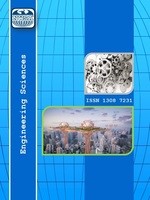RESTORAN TASARIM PERFORMANSININ ÖLÇÜLMESİNE YÖNELİK BİR MODEL ÖNERİSİ
Bu çalışmada, restoran tasarım önerilerinin beklenen kriterleri karşılama düzeyini sayısal olarak ölçmeye yönelik bir çekirdek değerlendirme modeli önerilmektedir. Önerilen model tablolarla örneklenerek açıklanmıştır. Model çıktısı olarak elde edilen skor, gerek seçilmiş bulunan tasarım önerisinin değerlendirmesinde ve iyileştirilmesinin izlenmesinde gerekse tasarım önerilerinin karşılaştırılmalı olarak değerlendirilip sıralanmasında kullanılabilir. Önerilen modelin tasarım çalışmalarının performansının objektif olarak değerlendirilmesinde fayda sağlayacağı düşünülmektedir.
Anahtar Kelimeler:
Restoran, Tasarım, Performans, Ağırlıklı Değerlendirme Modeli, Proje Seçimi,
A MODEL SUGGESTION TO MEASURE THE RESTAURANT DESIGN PERFORMANCE
In this study, a core model which intends to measure the expected level of restaurant design proposals that meet the criteria is suggested. The proposed model is explained by sampling tables. The scores obtained in the output of the model should be used for both the evaluation of design proposals selected and for monitoring as well as ranking the comparison of design recommendations. The proposed model is expected to be useful for evaluating the performance of design studies.
Keywords:
Restaurant, Design, Performance, Weighted Scoring Model, Project Selection, ,
___
- Almanza, B.A. ve Kotschevar, L.H., (1985). Food Service Planning Layout, Design and Equipment. New Jersey: John Wiley and Sons.
- Arıcı, O.,(2001). Mekanın Algılanmasını Belirleyen Faktörler. Yayınlanmamış Yüksek Lisans Tezi. İstanbul: Mimar Sinan Üniversitesi Fen Bilimleri Enstitüsü.
- Arora, R.K., (2007). Food Service and Catering Management. New Delhi, India: Kul Bhushan Corporation.
- Brichfield, J., (2008). Design And Layout of Food Service Facilities. New jersey: John Wiley and Sons, Inc,Hoboken
- Ching, F.D., (1996). Architecture: Form, Space and Order. New York: Van Nostrand Reinhold
- Cruz, T.V., Vicente, G.C., and Basbas, L.D., (2007). Learning and Living in the 21st Century. Philippine: Rex.
- Durocher, J.F. and Baraban, R.S., (2010). Successful Restaurant Design. Hoboken, New Jersey: Jhon Wiley and Sons.
- Hasol,D.,(1998) Ansiklopedik Mimarlık Sözlüğü 7.b,İstanbul: YEM, Yapı Endüstri Merkezi Yayınları, s.306.
- Jones, P.M., (2006). The Management of Foodservice Operations. London: Thomson Learning.
- Kim, W.G., Lee, Y.K., and Yoo, Y.J., (2006). Predictors of relationship quality and relationship outcomes in luxury restaurants. Journal of Hospitality and Tourism Research: 30(2), 143–169.
- Levi, B., (1956). Saper Vedere L’Architettura. Milano: Einaudi Press., s.38-39.
- Liu, Y. and Jang, S., (2009). Perceptions of Chinese restaurants in the U.S.: what affects customer satisfaction and behavioral intentions? International Journal of Hospitality Management: 28, 338–348
- Mathisen, G.E., Einarsen, S., and Mykletun, R., (2008). The occurrences and correlates of bullying and harassment in the restaurant sector. Scandinavian Journal of Psychology:49, 59–68. Neufert, E. P., (2002).(456) Neufert. Tehran: Melli Tehran Kütüphanesi.
- Ozay, N., (1998). Influence of Stylistic Tendencies on the Interior Design in Cypriot Architecture. Gazimağusa, T.R.N.C: E.M.U Mimarlık Fakültesi
- Piotrowski, C.M. and Rogers, E.A., (2007). Designing Commercial Interiors, 2.baskı, John Wiley and Sons, New Jersey, Canada.
- Satler, G.,(2003) New York City Restaurants:Vernaculars of Global Designing, Journal of Architectural Education: s. 27–39 ACSA, Inc.
- Stipanuk, D.M., (1992). Facilities Management. East Lansing, Michigan: Educational Institute of the American Hotel and Motel Association.
- Wall, E.A. and Berry, L.L., (2007). The combined effects of the physical environment and employee behavior on customer perception of restaurant service quality. Cornell Hotel and Restaurant Administration: 48 (1), 59–69.
- Başlangıç: 2009
- Yayıncı: E-Journal of New World Sciences Academy
